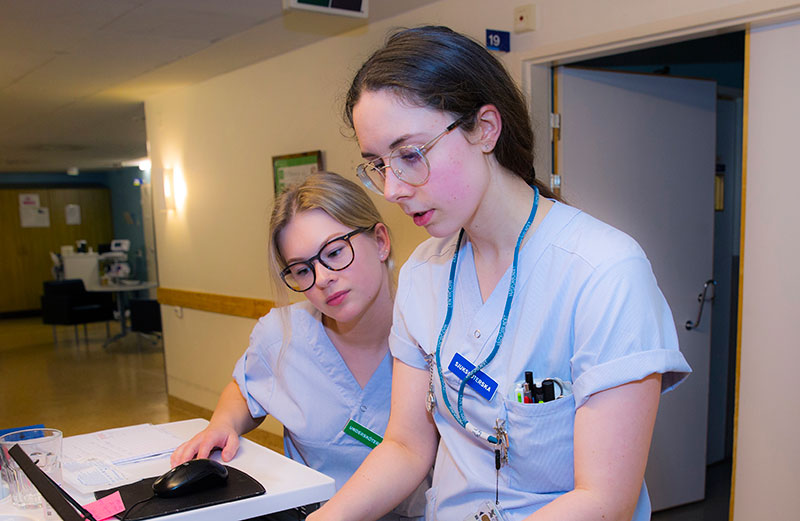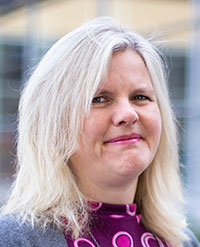Ylva Pålsson is a clinical lecturer and researcher in nursing science and she describes hospitals as very complex and fast-paced environments, where most patients are very ill and, often, there is a shortage of staff. She could see that many of her old students did very well in the ward, but that some lost the light in their eyes.
“Skilled and hardworking recently graduated nurses may lose their spirit. I think it is because of ethical stress. They have a dream about making a difference, of being there for the patients, and instead they find themselves running from place to place to make it in time,” Ylva Pålsson says.
But she also saw students bloom when they were given the chance to learn together with another new nurse.
Stronger belief in themselves
In her research, she saw that students who did their placement period as a pair could support one another; they felt more independent when they were a pair. Those who worked in pairs also gained a stronger belief in their ability to be successful in the nursing profession.
“Together with your colleague you are able to do more things without help, and to see that it works makes you grow. To have the support of another new nurse and to be able to process all impressions together can be crucial.”
“We didn’t have time to do more things”
Ylva Pålsson points out that newly graduated nurses often have very high demands on themselves. They think that they should be able to keep up with nurses who have worked for five, ten or fifteen years. In such instances, it is good to be able to compare oneself to, and discuss issues with, someone who is as new to the profession as oneself.
“Together they can tell one another that we worked ourselves to the bones today and yet we didn’t have time to do more things. This is because we are unsure of ourselves which means that we check ourselves several times, for instance when we compound medications, and that takes time.
First-line managers: “They become independent faster”
First-line manager see peer learning as a good method too, as new nurses learn from each other, become independent faster and both of them learn to collaborate and learn by collaborating.
“Nursing is such an amazing profession and by working in a new way, we can support students and new nurses while they become accustomed to the environment and we can make them feel safe while doing so. It is so important to take care of the new ones as many are leaving the profession,” Ylva Pålsson concludes.







